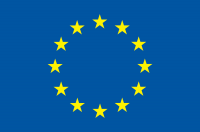

NEUTRALPATH aims at demonstrating that PCEDs designed and implemented under participative and human-center principles are cost-effective and feasible solutions to contribute significantly to the cities’ transformation towards climate-neutrality, allowing to speed up the process even to reach SCOPE 2 emissions reduction in 2030. Dresden (Germany) and Zaragoza (Spain), with strong experience in urban transformation projects and fully committed to be climate neutral in 2030, will demonstrate 2 PCEDs from the design to the implementation and evaluation stages acting as Lighthouse Cities. Both cities also ambition to act as front-runners of this process creating Climate-Neutral LABs conceived as Innovation Hubs with the aim of fostering faster upscaling and replicability at EU level, making three Fellow Cities (Istanbul[Turkey], Ghent [Belgium] and Vantaa [Finland]) through their own CN-Labs direct participants of the processes and later on main protagonists by means of their own PCED design and implementation. NEUTRALPATH will deliver a strong contribution to meet the EU climate targets establishing a collaboration agreement with the Cities Mission Platform focused on exchanging knowledge and experiences, as well as with the main EU initiatives as H2020 SCC Lighthouse projects and SC Marketplace or Covenant of Mayors.
The Quartier Van-Gogh- Straße is located in the outskirts of Dresden and is characterized by loose building development. The buildings have a gas network connection and are supplied with heat by means of classic gas boilers. The quarter has 2-storey apartment buildings of an older design with very high energy consumption, which no longer corresponds to current standards. Therefore, there is definitely a need for refurbishment. It is obvious to develop this quarter within the framework of the EU project as an exemplary lighthouse project for the energetic refurbishment of existing quarters. Since the district is not connected to a district heating supply, the goal should be a self-sufficient, completely regenerative supply of heat and cold. As part of the project, the Institute for Building Climatology at the TU Dresden will develop an energy supply concept for the Van-Gogh-Straße quarter in Dresden and a renovation concept for the existing buildings. The goal is to establish a 100% emission-free heating and cooling supply that also helps to reduce operating costs. Fossil fuels will no longer be burned for the purpose of energy supply. There should also be no crowding out of residents through costly renovation. Instead, the focus is on maximum CO2 reduction at minimum cost. This creates win-win situations for owners and tenants and at the same time makes a sustainable contribution to climate protection. For the planning of sustainable and economically attractive concepts, the Institute for Building Climate consistently relies on self-developed numerical simulation programs as a planning tool. The experience from 30 years of research work has flowed into these programs and they represent the current state of research in this field (see https://www.sim-vicus.de/). This achieves the intelligent coupling of PV electricity, heat pump, thermal storage and, if necessary, a combined heat and power plant, as well as the activation of the building mass as a thermal storage. With the help of the simulation, the concept is optimized in terms of costs and CO2 reduction and realistic operating scenarios are developed. The refurbishment of the buildings follows the "Fit for Renewables" principle instead of focusing on maximum energy savings. This saves costs and creates advantages for the environment in the life cycle balance of the quarter.
Interventions B1-B3, Actions B1.1-B3.4: B1 Transformation of the energy supply system: goal of zero emissions B1.1 Heat supply for the quarter through decentralized heat pumps and near-surface geothermal energy with the aim of emission-free building operation B1.2 Complete use of the building roofs for PV power generation and additional PV power generation through design facade elements B1.3 Maximization of own electricity use through power-heat coupling and storage use B1.4 Strong building resilience to climate change through robust regenerative heating and cooling supply B2 Development of the building stock: renovation and new construction B2.1 Refurbishment solution for existing buildings with activation of the building mass as thermal storage B2.2 Cost savings and acceleration of the renovation through minimal intervention in the building fabric B2.3 Life cycle-optimized new construction solution, taking into account primary energy and emissions from material production and building operation B2.4 Optimization of the entire system of energy generation and use through the consistent use of digital twins in planning and operation B3 Measures for mobility, communication and user acceptance B3.1 Development of the infrastructure for a sustainable mobility concept B3.2 Support for social housing, no crowding out of occupants through minimal running costs for electricity and heating/cooling supply B3.3 Scientific monitoring of building operation, operational optimization and proof of target achievement for at least 2 years B3.4 Informing residents about planned measures and their implementation on the basis of monitoring at a low-threshold, generally understandable level